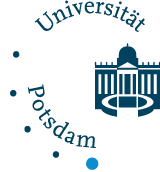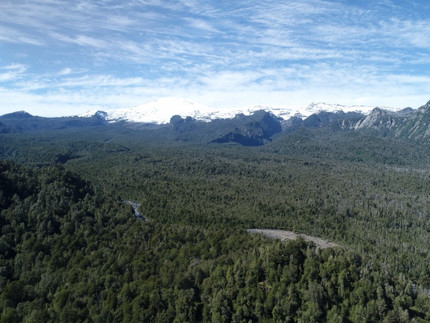Trees Trigger Trouble – Landsliding by Biomass Surcharge and Wind Disturbance in Patagonian Rainforests (RETROGRESS)
Funding agency:
Deutsche Forschungsgemeinschaft (DFG)
Funding period:
11/2021 – 07/2025
Project description:
Forests are essential to Earth’s habitats because forests accumulate carbon from the atmosphere in exchange for oxygen, regulate global climate patterns, and protect soil cover from erosion. Forest disturbances may lead to massive, pulsed releases of carbon into the atmosphere. Yet sometimes disturbances can drive atmospheric carbon drawdown. For example, landslides may transfer organic
carbon stocks contained in soils and woody material into storage via rapid burial under debris, while subsequent forest regrowth acquires atmospheric carbon. Landslide scars expose fresh rock to weathering. It remains unclear if the net result of such dynamics lies in absorbing (net sink) or releasing (net source) atmospheric CO2. Understanding the role of disturbances for the overall
organic carbon (C) storage efficiency, and, thus, the carbon cycling in forest ecosystems is still in its infancy. With this projects we aim to close this research gap by quantifying biomass in the Coastal Rainforests in Patagonia, Chile. The study area lies within the Douglas Tompkins Pumalin National Park. This jewel protects pristine Patagonian coastal rainforests that is marked by a highly moderating, cool Pacific maritime climate providing continuously wet conditions that favor growth of dense, contiguous evergreen broadleaf forests which are further relatively free of human influence. In RETROGRESS, we aim to develop process-based landslide models (Landlab) including time-varying biomass loading, root cohesion, and wind forcing. We feed our models withairborne LiDAR data, field data, hydroclimatic monitoring and environmental seismology. The latter enables us to measure how trees transfer kinetic energy via swaying into the shallow subsurface.
Cooperation partners:
- Dr. Michael Dietze, German Centre for Geosciences, Potsdam, Germany
- Prof. Dr. Brian Buma, University of Colorado, USA
- Prof. Erkan Istanbulluoglu, University Washington, USA
- Prof. Dr. Andrés Iroumé, Universidad Austral de Chile, Chile
- Dr. Violeta Tolorza, De La Frontera, Temuco, Chile

